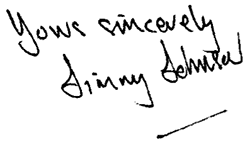According to the Daily Mail Online article [7 June 2022], psychiatrists have recently made a ‘significant’ discovery, in that chemically induced psychedelic substances such as ecstasy promote alternative thought patterns to help treat veterans suffering combat related PTSD.
‘Should doctors be prescribing psychedelic drugs to treat depression? Psychiatrists are set to begin trialling MDMA this year on former servicemen suffering with post-traumatic stress?’ By John Naish – Daily Mail: https://www.dailymail.co.uk/health/article-10890587/Should-doctors-prescribing-psychedelic-drugs-treat-depression.htmlt
The story states that this is a major breakthrough which is already helping PTSD sufferers. Rick Doblin, the founder and executive director of the California-based Multidisciplinary Association for Psychedelic Studies, claims ecstasy makes psychotherapy more effective by reducing patients fear-based responses to traumatic memories by giving them a sense of safety.
However, there are at least three fundamental flaws with this claim.
Firstly, it assumes (like most psychiatrists do) that talking about a problem in depth is necessary for recovery. Yet I know from personal experience that this is not the case. Therefore, getting a patient ‘high’ to make them ‘loose-lipped’ is an unnecessary complication, together with the fact that drugs reduce all responses the body uses to inform oneself of a problem, especially Class A drugs. Furthermore, the patient must know that the mind is sufficiently stable before going anywhere near talking through traumatic experiences, as this can create a roller coaster of emotions. Coercing patients into taking drugs deprives them of their sense of danger, which combat veterans heavily rely upon to survive and get them through the conflict situations. The chances of establishing a trusty belief and respect will as a result be irrevocably damaged and therefore eliminate any chances of psychotherapy working.
Secondly, sufferers of combat related PTSD frequently experience flashbacks. These may be triggered by everyday events such as sights, sounds and noises, or by ruminating over their traumatic experiences. Unfortunately, these traumatic instances happen inconveniently and at unscheduled times, not only during structured drug induced therapy sessions. The best answer to this is professional patience and diligence without the resort to chemical stimulants.
Thirdly, introducing and teaching a desperate patient that illegal and easily obtainable drugs can give them instant relief is not helping the patient, but rather simply replacing one debilitating condition with another. This shows that limited progress has been made since the days when psychiatrists were convinced cutting out part of the patient’s brain was the best treatment for those with behavioural or mental issues.
Hence the term ‘grasping at straws’ springs to mind whenever I am aware of another ‘miracle cure’ discovered by psychiatrists, because basically they know very little about combat related PTSD. Indeed, some psychiatrists actually call themselves experts on the condition, even though the word ‘expert’ is derived from the word experience – of which they have none! You can see a broken leg, but you can’t see PTSD, and the fact that they have never suffered from this disorder means they have based their whole assessment on having read books and papers, or presuming that combat veteran patients were actually telling them the true facts of PTSD during their treatment sessions.
And the truth is that if a patient does not respond to psychotherapy, it is because the therapy is failing to address their need or is being delivered in a way the patient cannot assimilate and recall when needed. For instance, a very good friend of mine many years ago was working as a training instructor, and attended a seminar where the presenter gave him some valuable insight by stating: ‘If a trainee does not understand and cannot put into practise what you teach, it is not the trainee’s failure but ours for not delivering the lesson in a way that it can internalise’.
So, while I agree that no stone should be left unturned in a search for an effective treatment for PTSD, the fact remains that there are well documented cases where ill-conceived psychological intervention has not only hindered patient recovery, but has actually caused further damage [Ref Lobotomy and prison sex offender programmes – now proved to be ineffective].
Basically, what is required is a treatment the patients themselves can take ownership of and self-administer as and when required, in short, they can use their mental strengths to overcome and deal with this mental disorder. I would suggest the best, cheapest and safest intervention for combat related PTSD is education, knowledge and reassurance. These issues on PTSD are laid out clearly in ‘The Veterans’ Survival Guide’ written by myself – a fellow sufferer of combat related PTSD for many years.
The Veterans’ Survival Guide is a book that will convincingly reassure a patient that what they are experiencing is a normal response to their trauma and not a sign of losing their minds. The patient can be empowered [like hundreds of other combat veterans who have read The Veterans’ Survival Guide] with the knowledge they are safe with where their trauma really is. They will also realise why their trauma occurs and also find that their family and friends are not part of the problem but can be of great help. The book helps veteran therapy groups find the tools needed to re-visit, examine and analyse their traumas at a time and place of theirs rather than psychiatrists’ choosing. Thus prepared, the patient will be able to recognise the early signs of combat related PTSD and be able to safely defuse them before being lulled into false perceptions, and consequently improve and cope with the disorder with no hidden side-effects or dependencies.
Conclusion: If psychiatrists are to find an effective and universal treatment for combat related PTSD, they need to create a therapy that doesn’t alienate a significant group of potential patients. A therapy that does not require illegal or mind-altering drugs and one that doesn’t rely on other props to mask their failure to deliver effective treatment.

